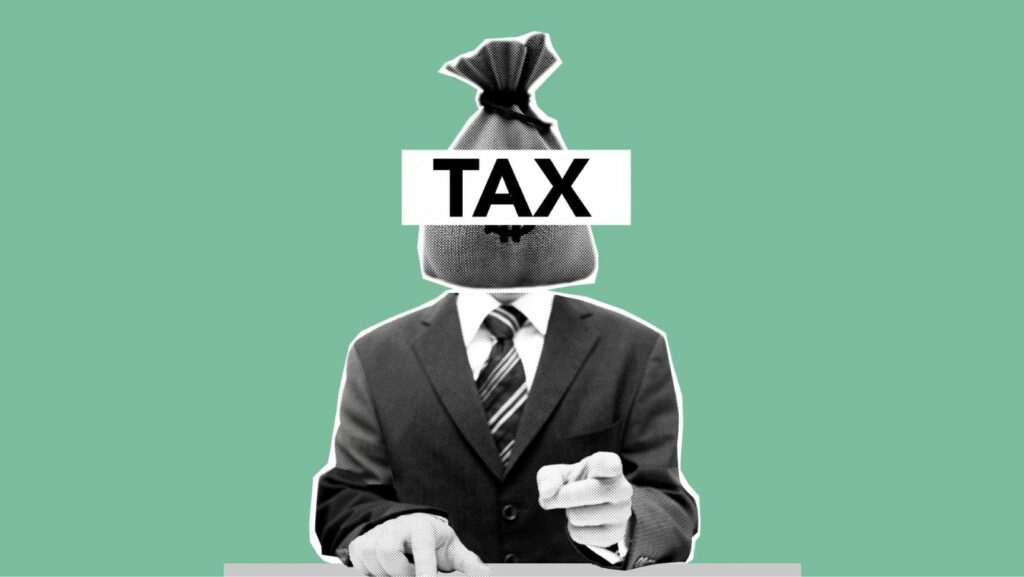Phantom tax isn’t some ghoulish levy imposed during the witching hour. Rather, it’s a very real and potentially impactful aspect of tax law that can come back to haunt unsuspecting taxpayers. Understanding this term is crucial to maneuvering the financial maze with confidence and certainty.
What is Phantom Tax Slang
Taxation, a complex field, abounds with professional jargon. Known as ‘tax slang,’ these terms often confound ordinary taxpayers, yet they’re critical in understanding the mechanisms of tax law.
The Role of Jargon in Taxation

In tax law, jargon assumes a key role. These specific terms let professionals communicate more efficiently, condensing complex concepts into digestible phrases. An example is ‘Phantom Tax,’ a term that encapsulates the idea of a tax liability on income that doesn’t exist in actual cash form. Here, understanding such terms reduces tax complexity, aiding in effective tax planning.Demystifying tax terms is a crucial step towards meaningful tax planning. Consider the term ‘Adjusted Gross Income (AGI).’ AGI refers to total income earned in a year, minus specific deductions. Decoding this term presents an accurate picture of taxable income, therefore helping taxpayers comply with their liabilities more effectively.
What is Phantom Tax Slang?
Phantom Tax slang pertains to the terminologies associated with an often-overlooked phenomenon in tax law – the Phantom Tax. It’s an unwelcome surprise lurking in the depths of comprehensive tax planning. Underlying this section are key concepts of Phantom Income and its consequences and the Impact of Phantom Tax on Individuals which further elucidate upon the intricacies of the Phantom Tax Slang.
Phantom Income and Its Consequences

Phantom Income signifies income that doesn’t exist in liquid form but is still taxable. This kind of income typically surfaces when an investor is part of a partnership or a holder of certain shares from startups where the company has marked profits but hasn’t disbursed any actual cash. For example, if a start-up reports a profit of $5 million, and an investor has a 20% stake, the investor’s phantom income is $1 million – tax liable, though cash isn’t received.The ramifications of this are significant, as taxpayers may find themselves owing sizeable tax payments on income they haven’t actually obtained. This induces a financial strain, with many grappling to meet their tax obligations amidst a cash crunch, giving rise to the term ‘Phantom Tax’.
The Origin of Phantom Tax Slang
Phantom tax slang finds its origins in the intricate workings of the US tax law. Intertwined with corner-case scenarios and complex financial strategies, it’s a term that often leaves individuals perplexed.
How it Became a Part of Tax Lingo

The term ‘Phantom Tax’ was coined within the realm of financial and tax planning to represent a unique situation. Its induction into tax lingo happened when the Internal Revenue Service (IRS) identified scenarios where individuals or entities were liable for taxes on income they hadn’t physically received, leading to the term’s emergence as a recognized jargon in the tax world.For example, with phantom income in real estate partnerships, a partner might be responsible for income tax even though they didn’t receive any cash profit from the partnership during the fiscal year. This phenomenon, seeming almost like a ghost, thereby earned the moniker ‘Phantom Tax’.
The Relation Between Phantom Income and Tax
Phantom income interweaves with the US tax system in intriguing yet complex methods. Repercussions prevail as phantom income impacts both individual and institutional tax returns.
Examples of Phantom Income Taxation
Phantom income can arise in numerous circumstances. In corporate distributions, the interest declared on bonds that haven’t been paid signifies a scenario. Second, allocations of profits in partnerships that the partner has not received in cash yet constitute another example. Third, accrued income from royalties that haven’t been paid also falls under this context. These instances highlight the real-life implications one may face due to the notion of phantom income taxation.Phantom tax has tangible implications on tax returns. When phantom income rears its head, it pads your taxable income. Consequently, without additional cash flow to offset this, taxpayers often find themselves in a tricky situation.

